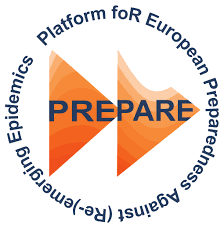PREPARE
PREPARE is a comprehensive approach aimed at enhancing the readiness of individuals, communities, and organizations for various types of emergencies or disasters. The concept of PREPARE encompasses a wide range of activities, including planning, training, education, and the development of necessary infrastructure and capabilities to mitigate the impacts of potential crises. This approach is critical in the fields of emergency management, public health, and disaster risk reduction, among others.
Overview[edit | edit source]
The essence of PREPARE is to ensure that all levels of society are equipped with the knowledge, skills, and resources to effectively respond to and recover from emergencies. This involves a continuous cycle of preparedness, response, recovery, and mitigation activities. The goal is to minimize the adverse effects of disasters on human health, the economy, and the environment.
Components of PREPARE[edit | edit source]
PREPARE can be broken down into several key components, each of which plays a vital role in the overall effectiveness of preparedness efforts:
Risk Assessment[edit | edit source]
Conducting risk assessments is a foundational step in the PREPARE process. This involves identifying potential hazards, analyzing their likelihood and potential impacts, and understanding the vulnerability and capacity of a community or organization to deal with these hazards.
Planning[edit | edit source]
Emergency planning is critical for establishing a clear set of actions to be taken before, during, and after a disaster. Plans should be comprehensive, flexible, and inclusive, covering aspects such as evacuation, sheltering, communication, and resource allocation.
Training and Exercises[edit | edit source]
Training programs and exercises are essential for building the skills and competencies needed to effectively respond to emergencies. These activities help to ensure that individuals and teams are prepared to implement plans and procedures under stress.
Public Education and Awareness[edit | edit source]
Raising public awareness and educating citizens about risks and preparedness measures can significantly enhance community resilience. This includes information on how to prepare emergency kits, develop family communication plans, and stay informed during a crisis.
Collaboration and Partnership[edit | edit source]
Effective preparedness requires collaboration among various stakeholders, including government agencies, non-governmental organizations, the private sector, and the community. Building strong partnerships ensures a coordinated and efficient response when a disaster strikes.
Challenges in PREPARE[edit | edit source]
Despite its importance, the implementation of PREPARE faces several challenges. These include limited resources, varying levels of commitment among stakeholders, the complexity of coordinating across different sectors and jurisdictions, and the need for ongoing public engagement and education.
Conclusion[edit | edit source]
PREPARE is a critical concept in enhancing the resilience of individuals, communities, and organizations to disasters. By focusing on risk assessment, planning, training, public education, and collaboration, societies can better withstand and recover from the impacts of emergencies. Continuous improvement and adaptation of preparedness efforts are necessary to address the evolving nature of risks and vulnerabilities.
| PREPARE Resources | ||
|---|---|---|
|
| |
Translate to: East Asian
中文,
日本,
한국어,
South Asian
हिन्दी,
Urdu,
বাংলা,
తెలుగు,
தமிழ்,
ಕನ್ನಡ,
Southeast Asian
Indonesian,
Vietnamese,
Thai,
မြန်မာဘာသာ,
European
español,
Deutsch,
français,
русский,
português do Brasil,
Italian,
polski
Navigation: Wellness - Encyclopedia - Health topics - Disease Index - Drugs - World Directory - Gray's Anatomy - Keto diet - Recipes
Search WikiMD
Ad.Tired of being Overweight? Try W8MD's physician weight loss program.
Semaglutide (Ozempic / Wegovy and Tirzepatide (Mounjaro) available.
Advertise on WikiMD
WikiMD is not a substitute for professional medical advice. See full disclaimer.
Credits:Most images are courtesy of Wikimedia commons, and templates Wikipedia, licensed under CC BY SA or similar.Contributors: Admin, Prab R. Tumpati, MD


